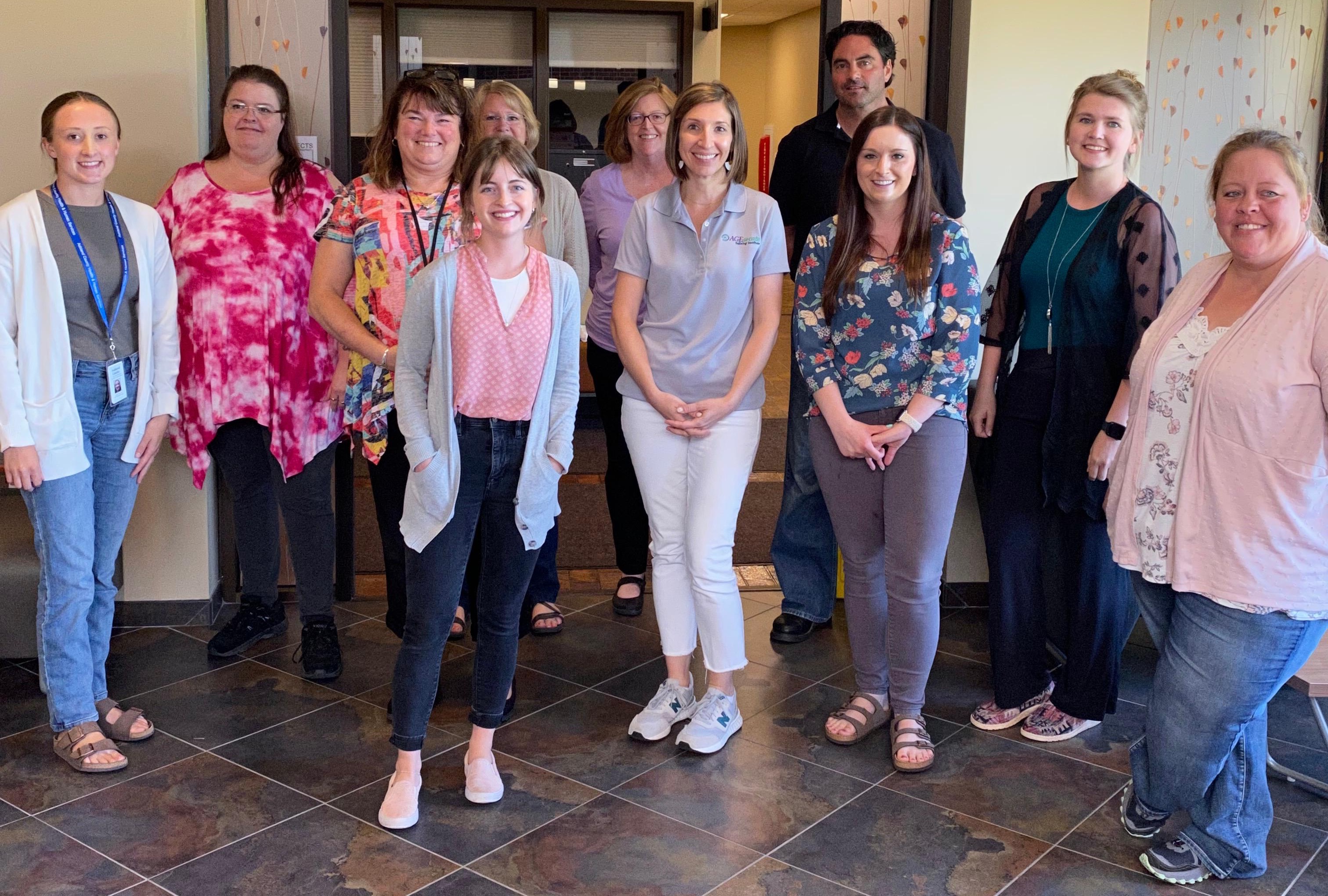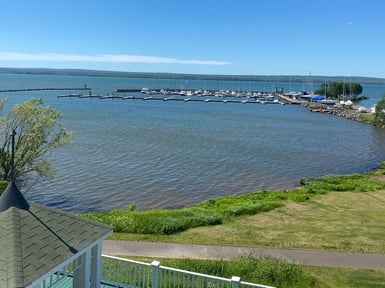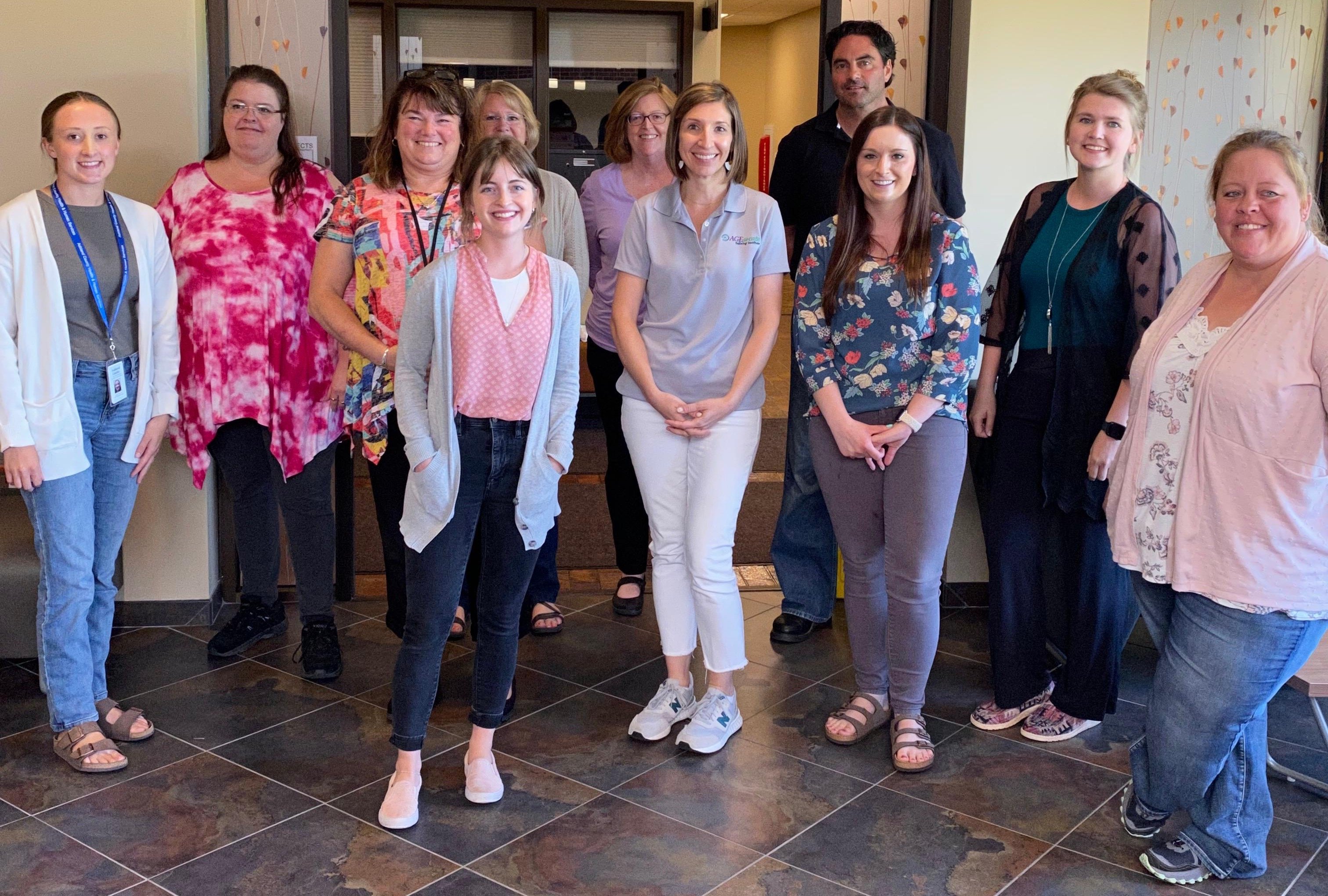Dementia Community Outreach: How Area Agencies on Aging Use Education to Build Community


Last Spring I had the pleasure of connecting with Ellie Webb, Dementia Care Specialist for the Aging and Disability Resource Center (ADRC) of the North in Wisconsin. That connection led to an in-person visit to train Ellie and 9 other team members from surrounding counties supported by the ADRC of the North to become Dementia Live® Coaches. Apart from the beautiful drive through rural Wisconsin as I made my way to the tip of the state on the coast of Lake Superior, spending time with such passionate people anchored in a similar mission to ignite change for their communities filled by buckets and my soul! View my full LinkedIn post for more pictures.
If you aren't familiar, Dementia Live is a high-impact, dementia simulation experience that immerses participants into life with dementia, resulting in a deeper understanding of what it’s like to live with cognitive impairment and sensory change.
So, why would an ADRC in rural Wisconsin want to equip team members with robust training and education tools?
In a recent follow-up with the team, I asked this very question. Let's hear from Ellie (that's her in the front wearing a grey sweater)!

Tell us about the mission of ADRC of the North as well as your specific role.
Aging and Disability Resource Centers (ADRCs) are a central source of information and assistance on issues affecting older adults, and adults with disabilities, regardless of income. ADRCs provide Long-Term Care Options Counseling, benefits counseling, health and wellness information, dementia education and consultations, and more!
Housed within ADRCs are Dementia Care Specialists (DCSs,) which is what I do! At the ADRC of the North, we have three Dementia Care Specialists who serve five different counties in Northern Wisconsin: Ashland, Bayfield, Iron, Price, and Sawyer. Dementia Care Specialists provide free information and support to adults with dementia, and their care partners. We work to improve the quality of life for people with dementia who are living at home and create communities where those living with dementia can remain active and safe.
You are a Dementia Live Coach, how does Dementia Live support your mission?
The foundation of the Dementia Care Specialist position is education; and what better way to educate people about dementia, than by giving them the chance to experience what living with dementia is like!? I can stand in front of a group and talk about dementia all day, but this hands-on experience is infinitely more impactful. No amount of presentations can take the place of the way that Dementia Live changes the way that people think about dementia, and providing care. This tool is extremely valuable, and I use it every chance that I get!
Can you share a story with us about the recent use of education to engage your local community?
At the end of September, I partnered with a local church to provide Dementia Friendly Training to their staff, volunteers, and congregation. The training is about one hour long and provides general dementia information, including the 10 warning signs of dementia, how to communicate with someone living with dementia, and a case study on how to handle a potential situation at the church that involves dementia.
The Dementia Live experience was offered immediately after the training, as an add-on to the training that the church had requested. The pastor and I predicted that only a few people would stay after the already hour-long training, due to the time. We were very wrong! So many people were interested in the experience, that I only had time to have 1/3 of them go through the simulation! Right now, I am scheduling another time to go back to the church, and facilitate the experience on a larger scale, so that everyone who was interested could go through it!
During the empowerment session after the experience, it was so moving to hear all of the stories of how Dementia Live impacted those that went through it. Many of the participants were direct, full-time caregivers, who shared that this will change the way that they provide day-to-day care for their care recipient.
Dementia Live really inspired a lot of discussion amongst members of the church. Now, that church is recognized as “Dementia Friendly” which means that it is a safe place for those living with dementia, and their care partners, to engage in social interaction. Dementia Live helped make this possible and is allowing me to continue building a strong working relationship with members of that community!
Anything else you'd like to share about area agencies on aging using education programs to support those you serve?
Partnerships like this one between ADRCs and AGE-u-cate Training Institute are essential in the health education field! We all have one common goal: to support and empower those living in our communities so they can handle difficult topics like dementia. When our organizations (and others) work together, more lives are impacted!
Conclusion
I'll leave you with a few highlights from my conversation with Ellie. These speak for themselves about the impact of investing in quality, engaging education programs to support the mission of area agencies on aging.
"No amount of presentations can take the place of the way that Dementia Live changes the way that people think about dementia, and providing care."
"So many people were interested in the experience, that I only had time to have 1/3 of them go through the simulation!"
"Now, that church is recognized as “Dementia Friendly” which means that it is a safe place for those living with dementia, and their care partners, to engage in social interaction. Dementia Live helped make this possible and is allowing me to continue building a strong working relationship with members of that community!"
To learn more about the Dementia Live program, visit www.ageucate.com/dementialive or view the on-demand video.

.jpeg)
